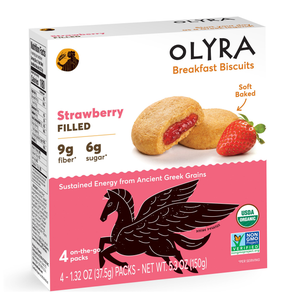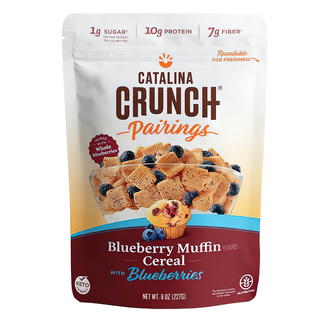
In a food environment that some experts describe as toxic—too much sugar, too much fat, too much processed everything—it can be useful to look not just at what’s been added but also at what’s been taken out: key nutrients that could be described as “gaps” in the modern diet. At the top of the list for many would be fiber.
Fewer than 5% of Americans hit the recommended daily intake of fiber (25 grams for women, 38 grams for men), and most people aren’t even coming close. The average American eats 10 to 15 grams a day.
The challenge for the natural products industry isn’t getting fiber into foods. Ingredient innovators have created forms that can be added to recipes and formulations without the grit or clumping of fibers past. And, of course, plain old fruit and vegetables match well with plant-forward trends, as long as the fiber isn’t processed out of products along the way. The challenge instead is getting it into consumers mouths, or at least into their mindsets.
Adequate fiber has been linked to lower rates of heart disease, diabetes and cancer, as well as reducing anxiety and depression. Fiber also offers benefits for cholesterol, and its positive effects for blood sugar and weight management are well known. New studies suggest high-fiber diets may reduce the risk of dementia.
And yet, the selling point for fiber has long been its benefits for digestion. For years, the entirety of the marketing for fiber was built around one word: poop.
The next frontier of fiber involves expanding consumers’ views of its benefits far beyond the bathroom. Some supplements and packaged natural food brands are beginning to tout fiber on the front of their packages, without digestion as a primary callout. This emerging approach is just the tip of the iceberg. When coupled with education about fiber’s role in controlling heart disease, diabetes, dementia and so many other conditions, brands can turn up fiber’s appeal to consumers who aren’t even thinking about digestive issues.
They might also be reminded that fiber was pushed off the plate by processed foods. People come to natural and organic food and dietary supplements to fill gaps created by the modern food system. Brands that remind them of what those gaps are and how easy they are to fill could help 95% of consumers know what they’re missing.

Olyra Strawberry Filled Breakfast Biscuit
Lupines in your breakfast snack? Why yes, along with oats, barley, spelt and real strawberry jam. Olyra’s USDA Organic, Non-GMO Project Verified breakfast biscuits offer 9 grams of gut-happy fiber, including that which comes from lupines—the basis of the ancient Greek diet. What’s more, these healthy bars (just 6 grams of sugar) use heritage grains ground in Olyra’s traditional stone mills.

Catalina Crunch Pairings Blueberry Muffin Cereal
The cereal aisle keeps getting healthier—and this brand is contributing to the trend with a new cereal with whole blueberries. This keto-friendly, gluten-free product has 1 gram of sugar, as well as 10 grams of protein and 7 grams of fiber. It’s one of several SKUs from a health-aware brand created after its founder was diagnosed with diabetes.
About the Author
You May Also Like
.png?width=700&auto=webp&quality=80&disable=upscale)




